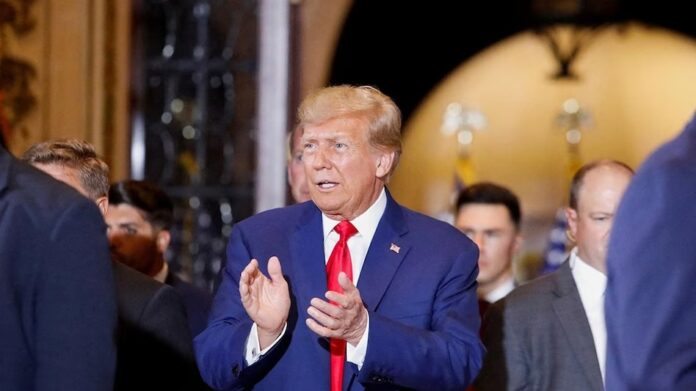Washington, D.C./Tehran — In a pivotal development in international relations, U.S. President Donald Trump announced that he expects to make a decision on Iran “very quickly,” signaling a potential turning point in one of the world’s most critical geopolitical standoffs. This comes amid renewed diplomatic engagement between the United States and Iran, following the first high-level negotiations between the two nations since Trump’s re-election in 2024.
The breakthrough talks, held on April 12 in Oman, have reignited global interest in the strained relationship between Washington and Tehran. Led by U.S. Special Envoy Steve Witkoff and Iranian Foreign Minister Abbas Araghchi, the discussions were described by both sides as “constructive” and “promising.” A second round of meetings is scheduled to take place in Rome later this month.
Renewed Nuclear Tensions Spark Urgency
At the core of the dialogue is Iran’s controversial nuclear program. Reports from the International Atomic Energy Agency (IAEA) indicate that Iran has recently enriched uranium to near-weapons-grade levels — a move that has sparked fresh concerns in the West. The Biden-era nuclear framework, which Trump had previously exited during his first term, now appears to be a key point of contention once again.
President Trump, maintaining his signature hardline rhetoric, warned that military options remain on the table. “Iran must understand one thing clearly: they cannot and will not possess a nuclear weapon,” Trump said during a press briefing at the White House. “We will act decisively if diplomacy fails.”
Economic Impact and Global Reactions
The announcement and subsequent talks have triggered immediate economic responses. Iran’s rial saw a brief surge in value, while its stock market showed signs of optimism — albeit tempered by skepticism due to past failed negotiations. Iranian citizens, burdened by years of economic sanctions, are cautiously hopeful that this diplomatic channel might yield relief.
Meanwhile, regional powers are closely monitoring the developments. Israel and Saudi Arabia, historically aligned against Iran, have expressed support for Trump’s firm position. In contrast, Russia and China — both of which maintain economic and strategic partnerships with Iran — have issued calls for a balanced approach, encouraging dialogue while defending Iran’s right to peaceful nuclear energy.
The Challenge of Rebuilding Trust
U.S.-Iran relations have been marred by decades of hostility, from the 1979 Iranian Revolution to the assassination of General Qassem Soleimani in 2020. The 2015 Joint Comprehensive Plan of Action (JCPOA), a landmark nuclear deal signed during the Obama administration, was meant to de-escalate tensions. However, Trump’s withdrawal from the deal in 2018 led to a resurgence of conflict and a collapse in diplomatic progress.
Analysts suggest that both parties now face the enormous challenge of rebuilding trust. Iran seeks significant sanctions relief, while the U.S. demands concrete commitments to halt nuclear enrichment and curb Iran’s ballistic missile development. These demands reflect deep-seated concerns over regional stability, particularly in conflict-prone areas like Syria, Lebanon, and Yemen.
Global Diplomatic Landscape
The international community is keeping a close watch. European Union leaders have welcomed the dialogue, emphasizing that diplomatic engagement is the only viable path forward. The United Nations Secretary-General has also called on both nations to demonstrate “maximum restraint” and commit to peaceful resolution through sustained negotiations.
This new phase of talks, although early in development, presents a rare opportunity for progress. The Rome summit later this month could serve as a litmus test for both sides’ willingness to compromise and collaborate for the greater global good.
Conclusion: A Critical Crossroads
President Trump’s swift move toward a decision on Iran reflects the urgency and gravity of the situation. With global stakes high — encompassing economic stability, regional peace, and nuclear non-proliferation — the next few weeks could shape the future of Middle Eastern diplomacy.
As the world watches closely, the unfolding dialogue between the United States and Iran has the potential to either defuse one of the most volatile flashpoints in modern history or ignite it further. One thing is clear: the outcome of these negotiations will reverberate far beyond the borders of either nation.
.


